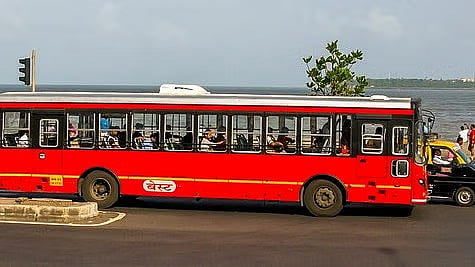
Mumbai's public bus service BEST (Representative image)
Credit: iStock Photo
Mumbai: Maharashtra’s ‘half ticket’ scheme on intercity bus travel has yielded modest improvements in women’s mobility and employment compared to states that offer full-fare subsidies for intra city buses, according to a study.
The study titled 'Beyond Free Rides: A Multi-State Assessment of Women's Bus Fare Subsidy Schemes in Urban India' is the first-of-its-kind multi-state analysis of bus-based travel schemes. It is based on over 2,500 surveys, several focus group discussions and key informant interviews across 10 cities in the states of Delhi, Karnataka, Kerala, West Bengal, and Maharashtra.
The study finds that 42% of women on average in Maharashtra’s three largest cities reported no change in their travel behaviour despite the subsidy from the Mahila Samman Yojana.
Only 10% of women on average in Mumbai, Pune, and Nagpur reported being able to travel longer distances after the scheme’s implementation compared to 32% of women across cities with full-fare subsidies like Delhi, Bengaluru, and Hubballi-Dharwad.
More than one in four women across the cities with full-fare subsidies like Delhi, Bengaluru, and Hubballi-Dharwad reported switching to buses after their states removed bus fares.
Around 26% of women on average across cities and respective subsidies reported feeling safer in buses after the introduction of these schemes.
The study was conducted by Nikore Associates and commissioned by the Sustainable Mobility Network in collaboration with Parisar and Waatavaran Foundation.
“Subsidies on intercity travel help very little with the everyday reality of getting to work, caregiving, or running errands. The demand is for complete fare subsidies on regular, daily routes. Pune and Mumbai recent fare hike and the ridership drop after it are important indicators of the role of fares in accessibility to public transport in general. Also, the fact that cities don’t have gender-specific data limits our ability to gauge the impact of such decisions on women,” said Ranjit Gadgil, Programme Director, Parisar.
“Maharashtra’s existing partial subsidies on select routes are a step in the right direction. Expanding access to daily, city-level commutes could unlock even greater economic gains for women and households, provided that valid concerns around the financial sustainability of STUs, capacity of bus fleets, gender sensitisation of frontline transport workers, and lack of universally accessible urban infrastructure are adequately addressed,” said Mitali Nikore - Founder & Chief Economist, Nikore Associates.
“Fare-free bus schemes don’t just improve commute options—they enable women to take up jobs more regularly, travel for healthcare, and save money for education. It’s a small policy shift with a wide social footprint,” Bhagwan Kesbhat, CEO, Waatavaran Foundation.